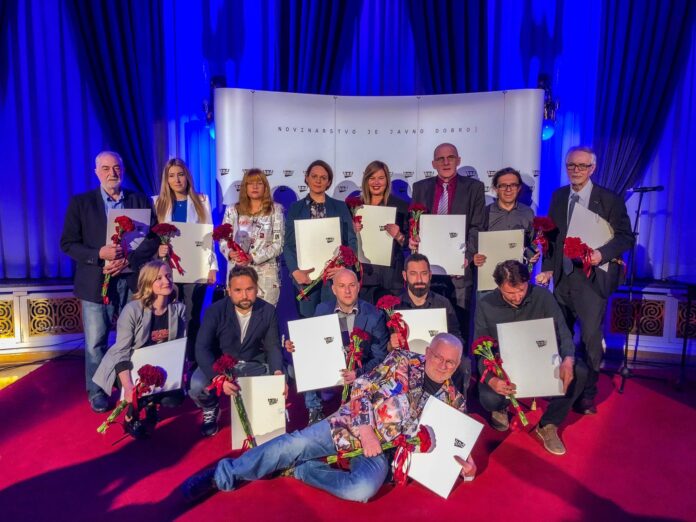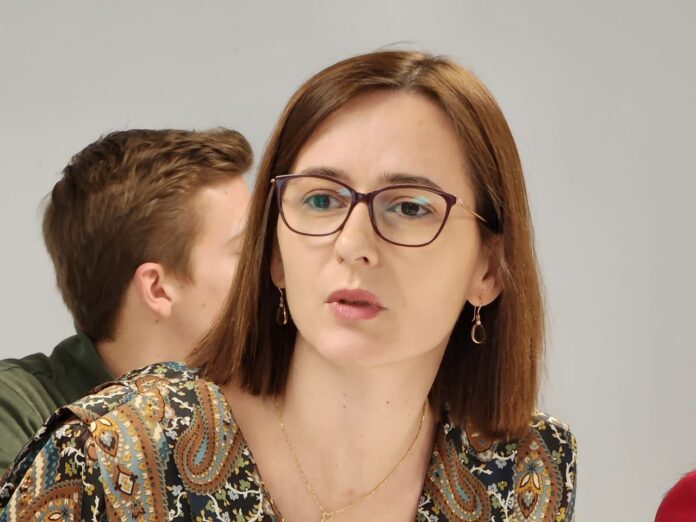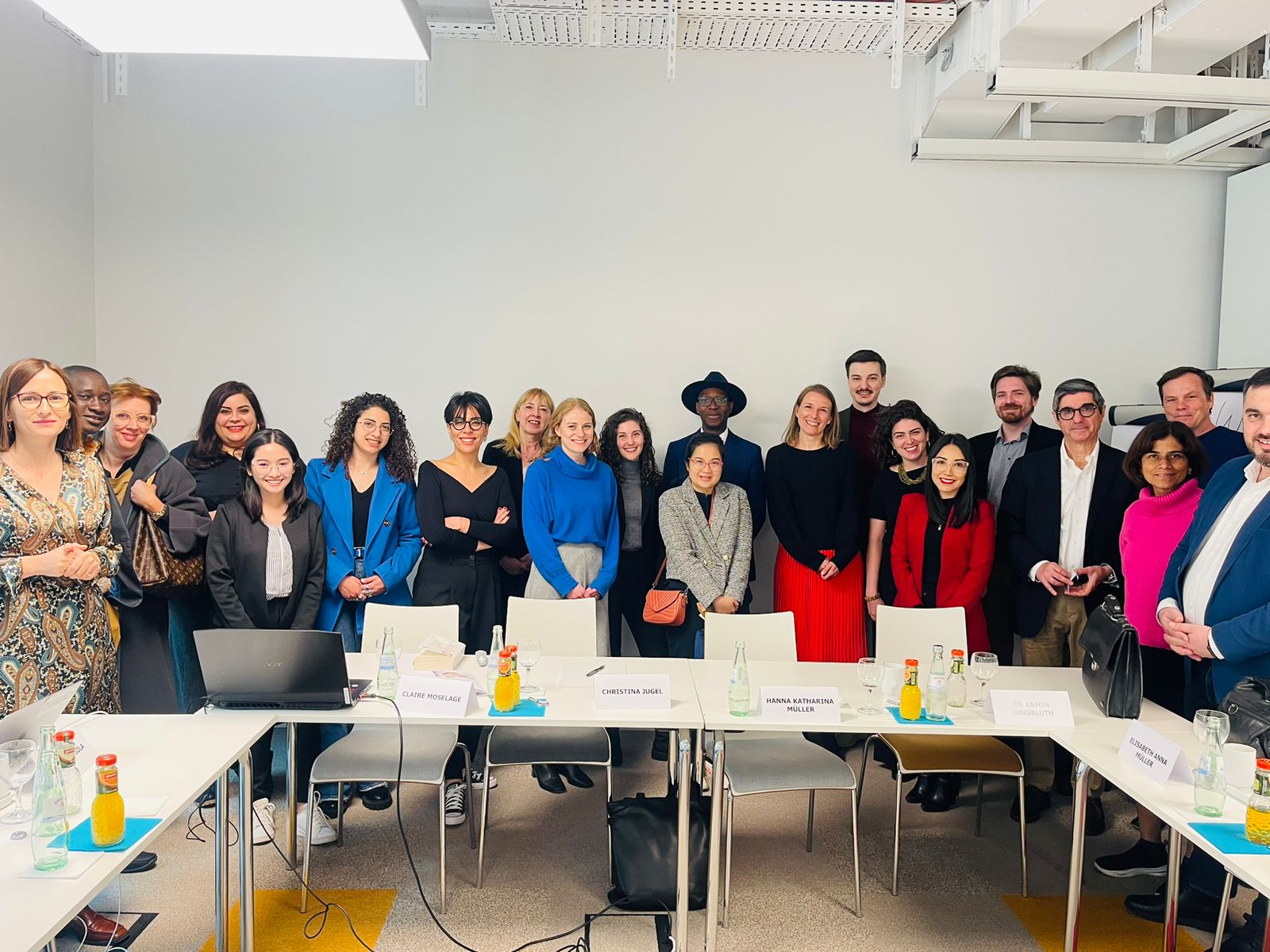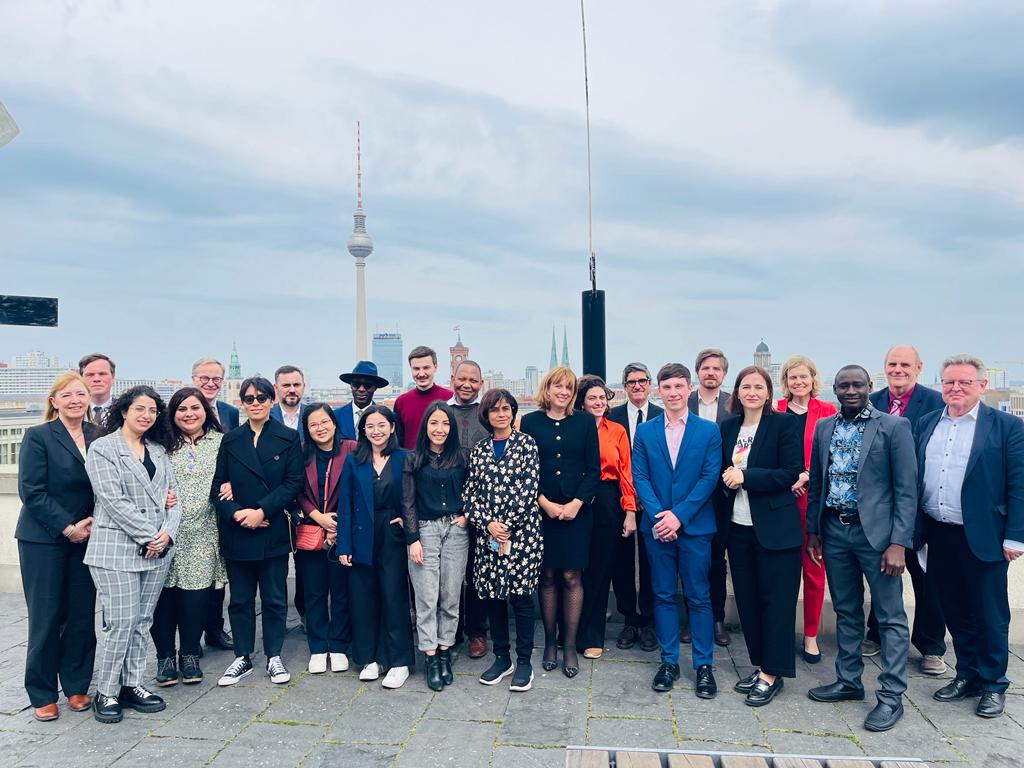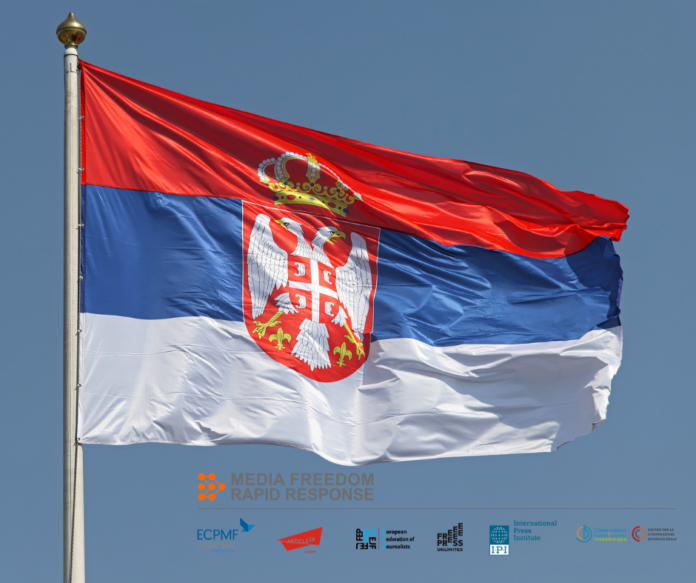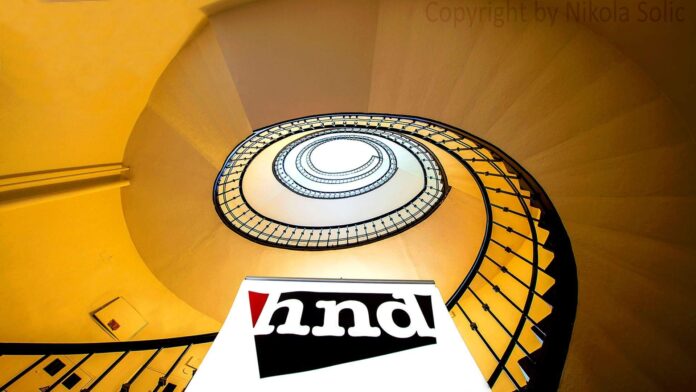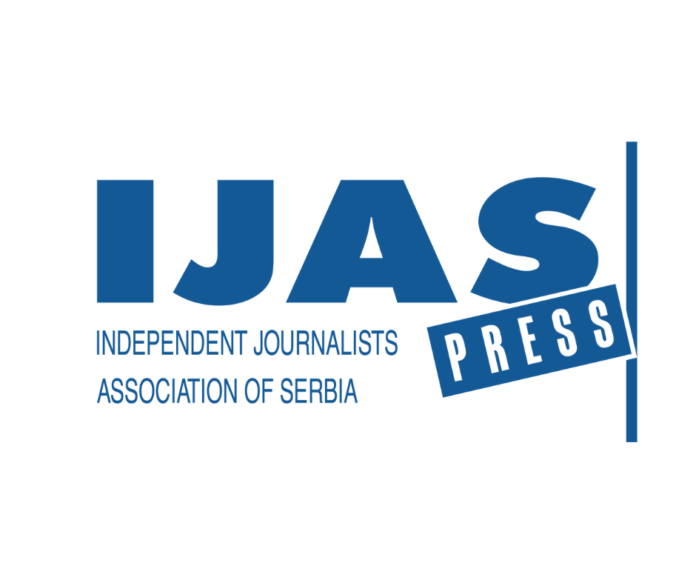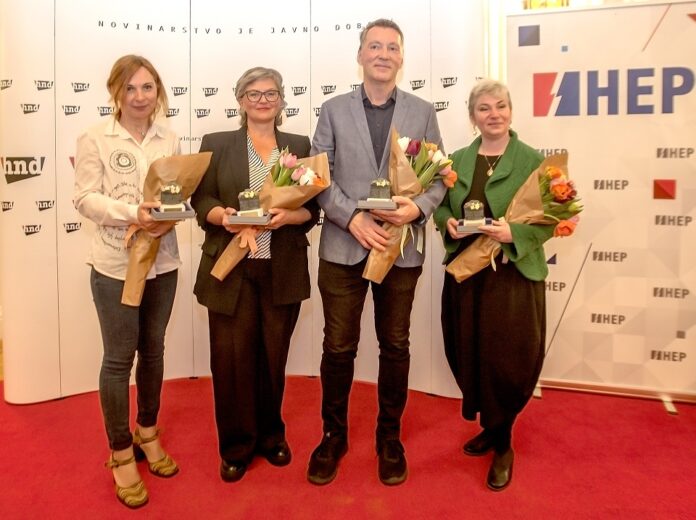By the decision of the members of the Croatian Journalists’ Association (CJA), this year’s title of Journalist of the Year was awarded to Nataša Božić Šarić. In a highly contested electronic voting race, she emerged victorious with 125 votes, while Hrvoje Šimičević and Dora Kršul each received 116, and Ilko Ćimić garnered 79 votes. Out of 454 CJA members who voted this year, 18 votes were invalid.
While awaiting the results for the best journalist of the year, the annual awards ceremony of the CJA, held at the Journalists’ House, honored the late colleagues Mislav Baga and Vladimir Matijanić with the Otokar Keršovani Lifetime Achievement Award.
Other winners this year include Hrvoje Ivančić, Igor Kralj, Ilko Ćimić, Zdravko Fuček, Barbara Majstorović Ivezić, Marino Grgurev, and Dora Kršul.
Recognition was also given to deserving CJA members with the Milan Grlović Awards: Ottone Novosel – Franz, Luka Brailo, Giacomo Scotti, and Danijel Popović. This award is given to outstanding journalists, members of the CJA, for their long-standing work and significant contribution to the development of the journalistic organization and the profession’s reputation, as well as the strengthening of media freedom; to journalists who have excelled in the work and activities of the CJA. The decision to award the Milan Grlović Recognition was made by the CJA’s Central Committee. Explanations of the Milan Grlović awards and CJA prizes can be found here.
In his introductory speech at the ceremony, CJA President Hrvoje Zovko welcomed everyone to the annual award ceremony of the Croatian Journalists’ Association for 2022, stating that we have greeted this year’s World Press Freedom Day with at least 945 lawsuits against journalists and media outlets. Zovko added that this figure of at least 945 lawsuits reflects the alarming pressure on our profession.
“In reality, it is more than 1000. We can now speak of a culture of lawsuits aimed at intimidating and destroying us. A lawsuit against one journalist, one media outlet – is a lawsuit against all of us. We must always bear this in mind and show solidarity with each other. The fight against censorship, various pressures, and for better working conditions is a fight that will accompany us throughout our lives. But from this place, we clearly send a message to the powerful: gentlemen, you will not succeed. You will not silence brave journalists, not even those at the local level, regardless of the pressures from various local sheriffs. On World Press Freedom Day, we also send a clear message to the Prime Minister and all those who want to sanction so-called leaks of information to cover up the political damage of their scandals. We will fight against this dangerous intention aimed at whistleblowers, journalists, and media outlets that publish information of public interest using all legal means at our disposal. Despite all the weaknesses of our profession, it makes this society better. Imagine what society we would live in without journalists? It would be complete darkness. Do we want such a society? No! We must never betray the journalism profession or all those brave generations of colleagues who have shaped it. The Croatian Journalists’ Association, founded 113 years ago, remains a key institution in defending journalism,” said Zovko, adding that the past year was very difficult.
“Unfortunately, we have lost the best among us, who were not only outstanding journalists but also good people, our friends whom we will never forget. Just as we will never stop seeking the truth and accountability for the death of Vladimir Matijanić,” said Zovko, noting that the list of all nominees, as well as those awarded and finalists for the selection of Journalist of the Year, shows the best we have. – These are brave colleagues who have repeatedly proven themselves with courageous and uncompromising work, work for the public, which is our only ally. Because journalism is a public good, and there is no compromise… The fight continues! Long live!” Zovko concluded.
The awards ceremony followed, with much anticipation for the results of who would win the race for journalist of the year. Jury President Hrvoje Krešić stated that the decisions made were neither easy nor simple, but he believes they did a good job, and the awards went to the right hands.
This year’s recipient of the Journalist of the Year award, Nataša Božić Šarić, said that in such strong competition, she did not expect to win. “That’s why I didn’t prepare a speech, and I think my colleagues have shown with their work what real journalism means,” said Božić, thanking everyone who contributed to her winning the award.
“The callousness of those we pay and those we elect, as well as the lack of interest in the most vulnerable among us, have always bothered Nataša Božić Šarić. The uncompromising fight for the weaker ones, for those in trouble, who cannot do without the help of the system, while the system does not care for them, is innate to her, and turning a blind eye to the misfortune of the weaker, shrugging or turning away is not an option for her, but quite the opposite, a trigger for action. If the system is flawed, and it is quite clear that it is flawed in so many cases, she will do everything in her power, through her work, the topics she raises, her interlocutors, and most importantly, the right questions and insistence on answers, to shake up the public, the system, and help those in need. This stands in the jury’s explanation in Nataša Božić Šarić’s nomination, adding that her work in the “TNT” magazine of N1 television is an example of how responsible journalism aimed at the public good and citizens can change society for the better.
It was particularly emotional at the award ceremony for two lifetime achievement awards, honoring colleagues who are no longer with us. Paula Bago’s niece accepted the award on behalf of the Bago family, while Andrea Topić received the award as the life partner of Vladimir Matijanić. “He always gave his all at work, and I can say that Vlado was the best journalist,” said Topić, adding that journalists often sacrifice their health while doing their jobs and should fight more for themselves and their rights. HND President Hrvoje Zovko read a letter from Dunja Matijanić, thanking friends and colleagues and expressing hope that the fight to hold those responsible for Vlado’s premature death will continue.
As stated in the justification for Mislav Bago’s lifetime achievement award, he has been the most influential television personality over the past 30 years.
“He irreversibly changed the way television reporting is done, especially in covering the work of top state officials. He was like a boxer standing in the ring against stronger opponents, but he fought with heart and mind for victory and never allowed fear or opportunism, so common in the lives of us journalists, to block him,” as beautifully described by colleague Boris Rašeta. It is noted that he selflessly shared his knowledge with young colleagues, was modest and honest, and made significant contributions to the journalism profession. For years, he was active in the Croatian Journalists’ Association – serving as its vice president – and received four HND awards, including Journalist of the Year.
Vladimir Matijanić is highlighted as arguably the best journalist of his generation, one of the last of his kind in the media scene, a man full of empathy who fearlessly debunked national myths and exposed injustices throughout his career until his untimely death. “He was an uncompromising fighter against injustice and lies throughout his career, from Student List and Feral Tribune to Slobodna Dalmacija and Index, where he worked until his premature death. He was a persistent and stubborn man who dedicated days and weeks to his work, often targeting local powerbrokers with special journalistic passion and courage,” among other things stated in the justification for the award. It is added that, unfortunately, posthumously Matijanić proved all the rot and helplessness of the Croatian healthcare system.
Hrvoje Ivančić received the Marija Jurić Zagorka Award for his outstanding reports from Ukraine, which became the most media-covered part of the world with the onset of war in that country.
Igor Kralj was awarded the Nikša Antonini Award for his photograph of the impressive Pelješac Bridge, published on the cover of Večernji list and other media outlets.
Zdravko Fuček won the Marija Jurić Zagorka Award for radio journalism for his report on the ship Galeb broadcast on the Third Program of Croatian Radio.
Ilko Ćimić received the Marija Jurić Zagorka Award for internet journalism for his thorough coverage of financial market regulators, particularly the Croatian National Bank and the Croatian Financial Services Supervisory Agency.
Barbara Majstorović Ivezić was awarded the Marija Jurić Zagorka Award for television journalism for her story on the most vulnerable category of citizens, the elderly and the helpless. She stated that the award belongs not only to her but also to numerous cameramen, editors, and employees of the home who participated in this sad story.
“In early February 2022, former employees of a nursing home in Stupnik near Zagreb contacted Nova TV journalist Barbara Majstorović Ivezić, revealing inhumane conditions in which the residents live, as well as the illegal work of the home’s owner and her assistant,” stated the jury.
The Žarko Kaić Award for television camera work went to Nova TV cameraman Marin Grgurev, who, in February 2022, portrayed the lives of two women, mother and daughter Nada and Dragana Boromisa from the vicinity of Dvor on the Una River, with journalist Maja Medaković. The story they filmed depicts women living in a dilapidated house in the 21st century, where they solve draft problems with adhesive tape. The floors are earthen but clean and tidy. There are no neighbors. Nor is there enough means to live.
Dora Kršul received the Jasna Babić Award for investigative journalism for her detailed series of investigative articles published on the Telegram.hr portal at the end of 2022, describing the scale of incomprehensible spending of public funds at the Faculty of Food Technology and Biotechnology in Zagreb. The series was initiated by the results of the Budget Oversight of the Ministry of Finance, which was made possible by earlier discoveries by this journalist.


